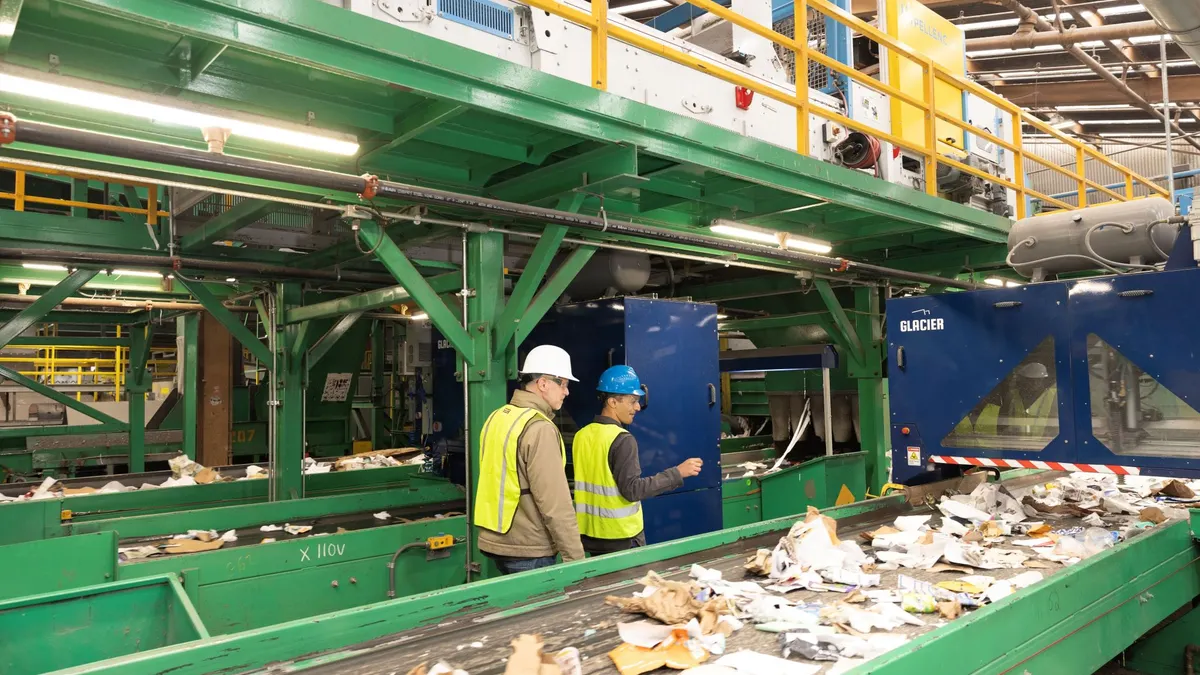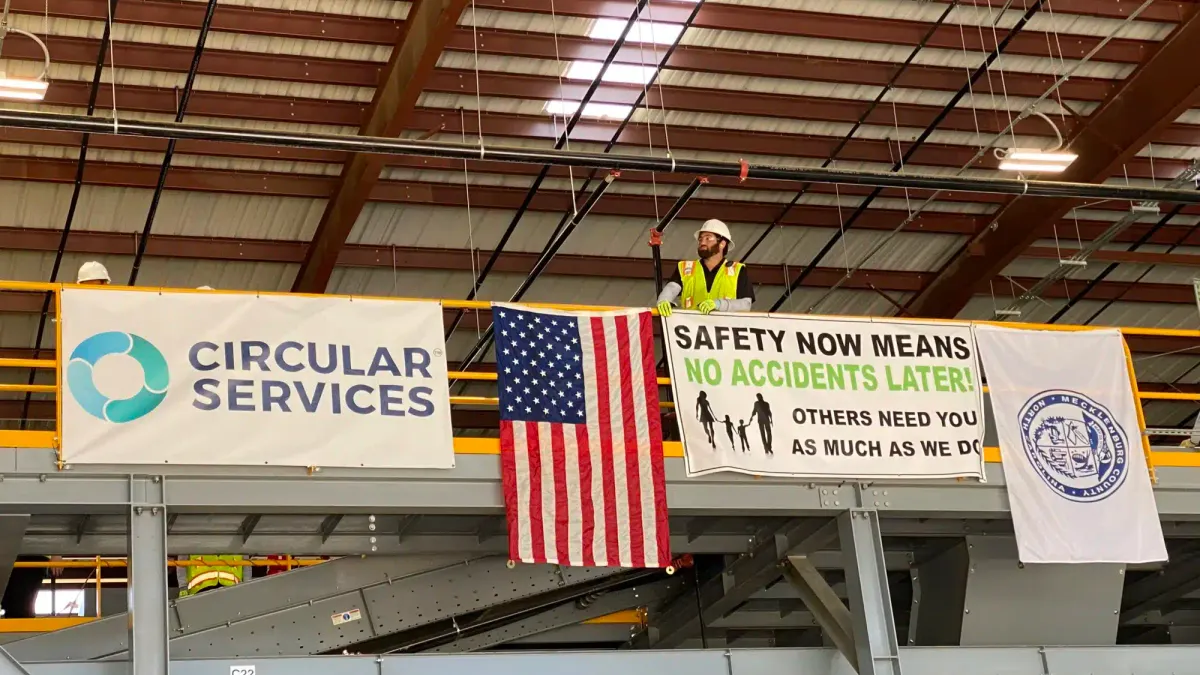Right-to-repair proponents see Apple’s newfound support for legislation in California as an encouraging sign that more states will soon be able to pass similar laws with less industry opposition.
After years of pushing back against right-to-repair initiatives, Apple recently announced its support for an amended version of California’s SB 244, saying it strikes the right balance between allowing consumers more repair options while still protecting data security and the intellectual property of original equipment manufacturers.
Right-to-repair advocates like Californians Against Waste, CALPIRG and iFixit called Apple’s announcement “an unexpected about-face.” Intense industry lobbying has played a major role in killing previous right-to-repair bills in California and other states, the groups said, and many viewed Apple as the lead in such opposition. However, in recent years, other companies like Microsoft have started shifting their position. “With the Right to Repair movement gaining recognition and support — and leading to laws in other states — Apple has reversed course,” the groups said in a joint statement.
Gay Gordon-Byrne, executive director of Repair.org, added in an email that while Apple’s “modest” announcement is significant, the success of other recent right-to-repair bills in New York last year, and Minnesota and Colorado this year, is due mainly to years of advocacy from consumers and advocates.
In 2023, 30 states have introduced right-to-repair legislation, with bills centering on farm equipment, consumer devices and other products. Many state legislatures have wrapped up their 2023 session, but several states are still working on right-to-repair bills. Here’s a look at some that are still in the works:
California
California’s SB 244 would require manufacturers to make tools and parts available to repair facilities and owners of certain consumer products. The bill would cover devices like televisions, radios and home appliances. It also allows cities, counties or the state to bring a civil action against OEMs that knowingly violate the law.
The bill passed the state Senate in June, and it’s soon expected to be considered in the Assembly Appropriations Committee. California has been trying to pass right-to-repair legislation for at least five years, according to CAW, and Apple’s support announcement has added new national attention to the issue.
Apple said in a statement that SB 244 “should balance device integrity, usability and physical safety with the desire of consumers to be able to repair, rather than replace, a device.”
Apple plans to continue supporting the bill as long as the final text meets certain requirements, such as prohibiting repair providers from disabling “device security features, many of which have been requested by law enforcement agencies and required by law to thwart theft.” The company also stressed that the bill should direct repair shops to follow specific procedures outlined by manufacturers to avoid “repairs that may compromise consumer physical safety, repair reliability, and device integrity.” Apple also wants to require that repair providers tell consumers when “non-genuine or used parts” are used in the repairs.
The deadline to pass bills in the state is Sept. 14.
Michigan
Michigan legislators introduced several right-to-repair bills this year, and two have made recent progress. HB 4562 is a general right-to-repair bill that would cover products like smartphones, laptops and appliances. The bill would make it mandatory for manufacturers to provide consumers and independent repair shops with tools, parts, and information to fix such devices.
Michigan is also mulling an agricultural machinery right-to-repair bill, HB 4673, which advocates say could help farmers fix their own tractors and other machinery. Currently, some manufacturers’ policies prohibit farmers from doing their own repairs. If passed, this bill would follow the success of Colorado’s tractor bill, HB23-1011, which was signed into law in April and is the first agricultural right-to-repair bill in the country of its kind. But equipment manufacturers like John Deere have historically opposed such legislation throughout the country and have lobbied heavily against such bills.
Michigan’s attorney general, Dana Nessel, is among the 28 state and territorial AGs that recently sent a joint letter to Congress asking legislators to “redouble” their efforts on passing right-to-repair legislation for “automobiles, agricultural equipment, and digital electronic equipment.” The joint letter also urged Congress to take up several pieces of federal right-to-repair legislation, including the Fair Repair Act, the SMART Act and the REPAIR Act, which didn’t pass last year.
Michigan’s House and Senate return from recess on Sept. 5.
Massachusetts
Massachusetts got close to passing a right-to-repair bill last year, and it’s trying again this legislative session with H. 360, which covers “portable wireless devices.” At a hearing in June, advocates urged lawmakers to look at the success of right-to-repair legislation in the neighboring state of New York.
“What this will do [in Massachusetts] is create a functioning and robust market for service repairs of laptops, iPhones, iPads and other portable electronic devices,” said Paul Roberts, founder of Secure Repairs, a right-to-repair group made up of cyber security and IT professionals, during the hearing.
Roberts also pushed back against the idea that independent repairs create cybersecurity risks, a position he reiterated when he testified in front of a subcommittee of the federal House Judiciary Committee in July. The subcommittee has examined right-ro-repair considerations at the federal level.
Pennsylvania
Pennsylvania, the 30th state to introduce a right-to-repair bill this year, is considering SB 744. The bill would cover all devices except cars, medical devices, and outdoor equipment for farming and construction. The bill calls for manufacturers to provide parts, tools and documentation “on fair and reasonable terms” and imposes a penalty of up to $10,000 for violations. The bill has been referred to the Consumer Protection & Professional Licensure committee, but it’s unclear when it could be discussed. The state Senate is expected to reconvene on Aug. 30 and the House will reconvene on Sept. 26.
Pennsylvania has put forth numerous types of right-to-repair bills in recent years, including farm equipment bills, but none have gained traction.



















